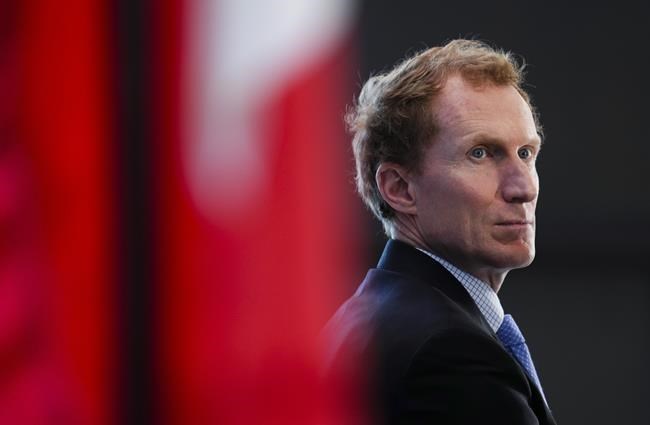The Canadian government says it's righting nearly a century of wrongs done to five First Nations in British Columbia by settling historic land claims owed under an 1899 treaty.
Federal Crown-Indigenous Relations Minister Marc Miller said during an announcement Saturday that Ottawa failed to live up to its obligations to the Blueberry River First Nations, the Doig River First Nation, the Halfway River First Nation, the Saulteau First Nations and the West Moberly First Nations for more than 100 years.
Miller said the feds will kick in $800 million as monetary compensation under the settlement, noting it's owed to the First Nations and not "free money."
"By not upholding its obligations as a treaty partner, the promise made under Treaty 8 to provide land was broken. Because of the Crown's failure, your communities received less reserve land than what was agreed by our nations when you signed the treaty with Canada," Miller said.
"We're here today to acknowledge the importance of those historical losses and to resolve land debt owed by the Crown."
B.C. Minister of Indigenous Relations and Reconciliation Murray Rankin, meanwhile, said the province will provide 443 square kilometres of Crown land under the settlement to the five First Nations.
Saulteau First Nations Chief Councillor Justin Napolean praised the provincial government under the NDP for a "change in direction" that led to the settlement after decades of conflict, and said the federal government's cash commitment would be "life changing" for future generations.
Napoleon said the Saulteau entered the treaty with the Canadian government in good faith, and that the Nation's elders were intent on keeping their word and expected the Canadian government to do the same.
But he said the Saulteau were shortchanged and ended up losing access to their lands, their way of life, and their ability to generate wealth on their own territory.
"At the same time, cumulative impacts of industry further eroded our ability to utilize our treaty lands according to our historic way of life," he said.
Napolean said the provincial government also allowed settlers on their lands, a "discriminatory policy" advanced by the province that thrust the Nation's elders into action.
"It's because of this unjustness that our elders set out to correct this wrongdoing," he said. "They approached government expecting that they would honor their word, but doors were shut in their face."
Premier David Eby said the settlement marks a "huge milestone" on the "long road to reconciliation" with Treaty 8 signatory First Nations.
He said past approaches involved drawn-out court battles, transactional relationships and short-term arrangements that the province can no longer afford.
"Honouring Treaty 8 is a key part of our work to advance reconciliation, reconciliation in the Peace River area and reconnect these five Nations with their land," Eby said. "By settling these treaty land entitlement specific claims, we're restoring the rightful amount of land that was promised under the treaty and all the benefits that should have flowed at the time to those Nations."
Miller noted it would be wrong to characterize the funds as a "windfall" for the First Nations, expressing reticence to disclose the dollar amount which he said could be misconstrued due to "ignorance" around government funding going to Indigenous groups.
He said the settlement is "critical to addressing past wrongs and advancing reconciliation in a way that respects the rights of First Nations and in a way that holds Canada accountable."
This report by The Canadian Press was first published April 15, 2023.
The Canadian Press



